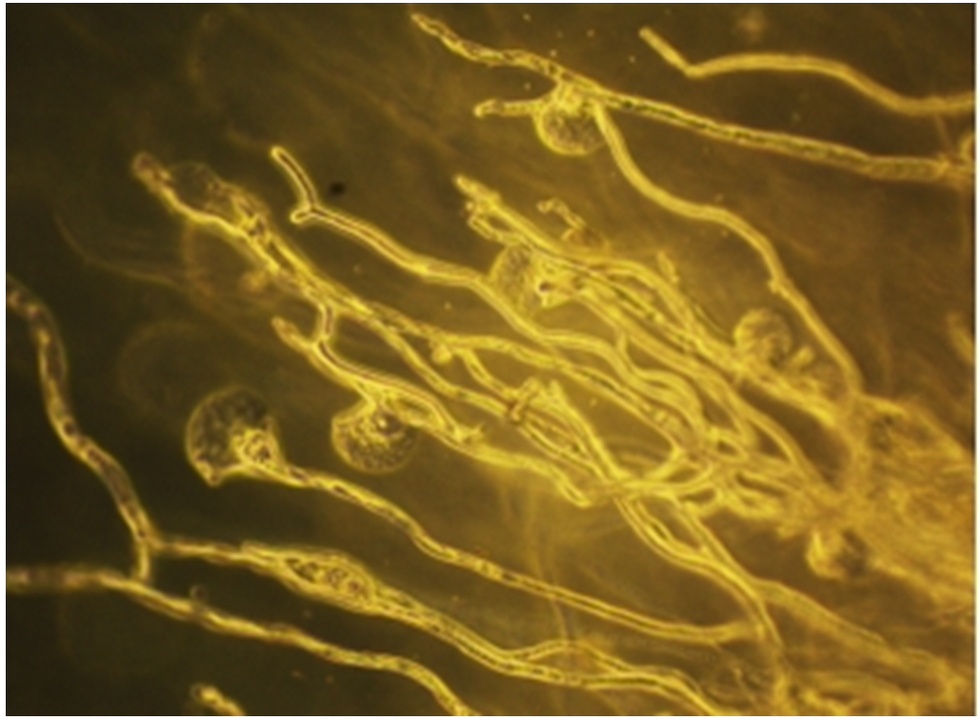About Nanoparticle-based Drug Delivery System:
- Nikkomycin-loaded Nanoparticles:
- Scientists have utilised Nikkomycin, a chitin synthesis inhibitor produced by Streptomyces bacteria, and loaded it onto polymeric nanoparticles to target fungal infections.
- Chitin, the main component of fungal cell walls, is absent in the human body, making it an ideal target for antifungal drugs. The nanoparticle-based delivery system leverages this difference to disrupt fungal growth.
- Effectiveness against Aspergillosis:
- The formulation has shown significant effectiveness against Aspergillus flavus and Aspergillus fumigatus, the fungi responsible for pulmonary aspergillosis.
- The nanoparticle-based drug delivery system inhibits fungal growth without causing cytotoxic (cell-damaging) or hemolytic (red blood cell-damaging) effects, making it a safer treatment option.
- Potential applications: The method is particularly beneficial for patients with conditions like asthma, cystic fibrosis, HIV, cancer, or those on long-term corticosteroid therapy, who are at higher risk of fungal infections.
- About Nanotechnology:
- Nanotechnology involves the manipulation of atoms and molecules at the nanoscale, typically within the range of 1 to 100 nanometers, to create structures, devices, and systems with unique properties.
- Nanoparticles are ultra-small particles with a high surface area-to-volume ratio, which gives them unique physical and chemical characteristics.
